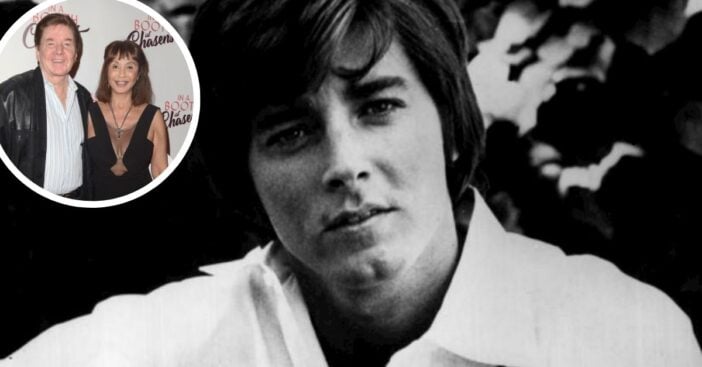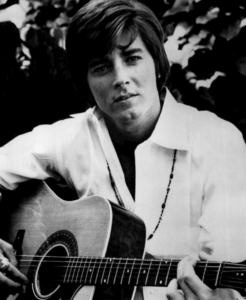
- Bobby Sherman died on June 24 at the age of 81.
- His passing follows a bout of cancer.
- Sherman was a former teen heartthrob and icon of the 1960s.
On June 24, Bobby Sherman passed away. He was 81 when he died, and his passing follows a battle with cancer, according to Parade Magazine. His wife of 29 years, Brigette Sherman, announced his passing on John Stamos’s Instagram due to their close friendship, the outlet reports.
Bobby Sherman rose to fame in the late 1960s as a teen idol with a string of pop hits and a winning smile that lit up both record covers and television screens. He became a household name thanks to songs like “Little Woman,” “Julie, Do Ya Love Me,” and “Easy Come, Easy Go,” all of which charted in the Top 10 and helped define the bubblegum pop era. Alongside his musical success, Sherman starred on the hit show Here Come the Brides, charming audiences with his boyish good looks and earnest performances. For a brief but blazing period, he was one of the most adored performers in America, with fan clubs, lunchboxes, and magazine covers to prove it.
The rise of Bobby Sherman

Bobby Sherman was born Robert Cabot Sherman Jr. on July 22, 1943, in Santa Monica, California, and grew up in the San Fernando Valley. A naturally gifted musician, he learned to play multiple instruments by ear and showed an early interest in both music and design, eventually studying at Pierce College with plans to become a dentist. His life took a turn after he performed at a Hollywood party and caught the attention of talent scouts, leading to his first break as a regular singer on the ABC music series Shindig! in 1964. His boy-next-door charm and musical talent quickly set him apart from other up-and-comers in the crowded pop landscape.
Throughout the mid-1960s, Sherman continued to build his presence with television appearances and small acting roles, steadily gaining popularity among young audiences. But it was his casting in Here Come the Brides in 1968 that truly launched him into the teen idol stratosphere. Playing the shy, stammering Jeremy Bolt, Sherman combined his acting and musical talents, winning over viewers and cementing his place in the hearts of teenage fans across the country. Capitalizing on his TV fame, he began recording pop singles, many of which shot up the Billboard charts and were backed by whirlwind tours and legions of screaming fans.

By 1970, Sherman was one of the most recognizable faces in America, gracing the covers of Tiger Beat and 16 Magazine alongside other heartthrobs of the era like David Cassidy and Donny Osmond. His single “Little Woman” sold over a million copies, and he followed it with a string of hit records that maintained his momentum through the early ’70s. He regularly appeared on TV variety shows, hosted The Bobby Sherman Show, and performed to packed audiences nationwide. While his fame burned brightly, Sherman always seemed somewhat grounded, even as he navigated the dizzying world of pop stardom.
As the 1970s wore on, Sherman’s popularity gradually declined in the face of changing musical tastes and the fading teen idol phenomenon. Rather than chase the spotlight, he pivoted to a new path—one that surprised many fans and earned him widespread respect. In the 1980s, he became a certified EMT and later a reserve police officer in Los Angeles, dedicating his time to public service and training other officers in emergency care. For Sherman, the transition from stage to service was not a retreat, but a calling, one that brought him a different kind of fulfillment.
Sherman kept a relatively low profile in his later years, occasionally making nostalgic appearances at fan conventions or on television specials celebrating ’70s pop culture. He married, raised a family, and continued to support causes related to public health and first responder training. While he never returned to the heights of his showbiz fame, he remained beloved by fans who remembered his music, his smile, and the kindness that always seemed to shine through. For those who grew up with his records or watched him every week on TV, Bobby Sherman represented an era of innocence and joy—and he never lost that gentle spark.
View this post on Instagram
